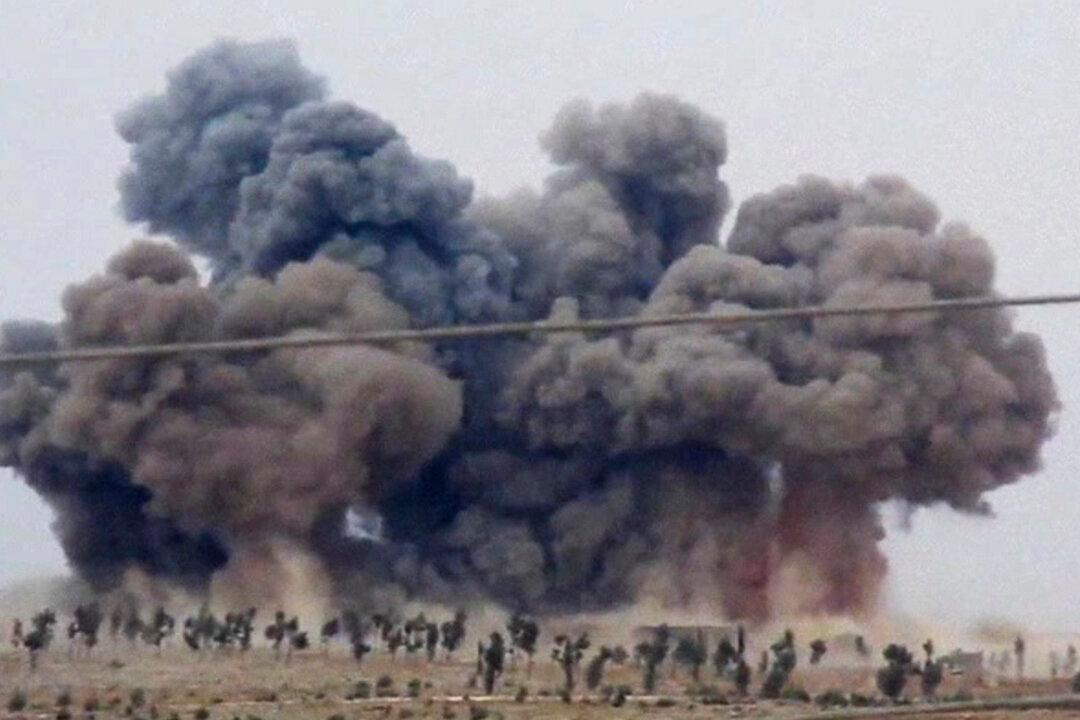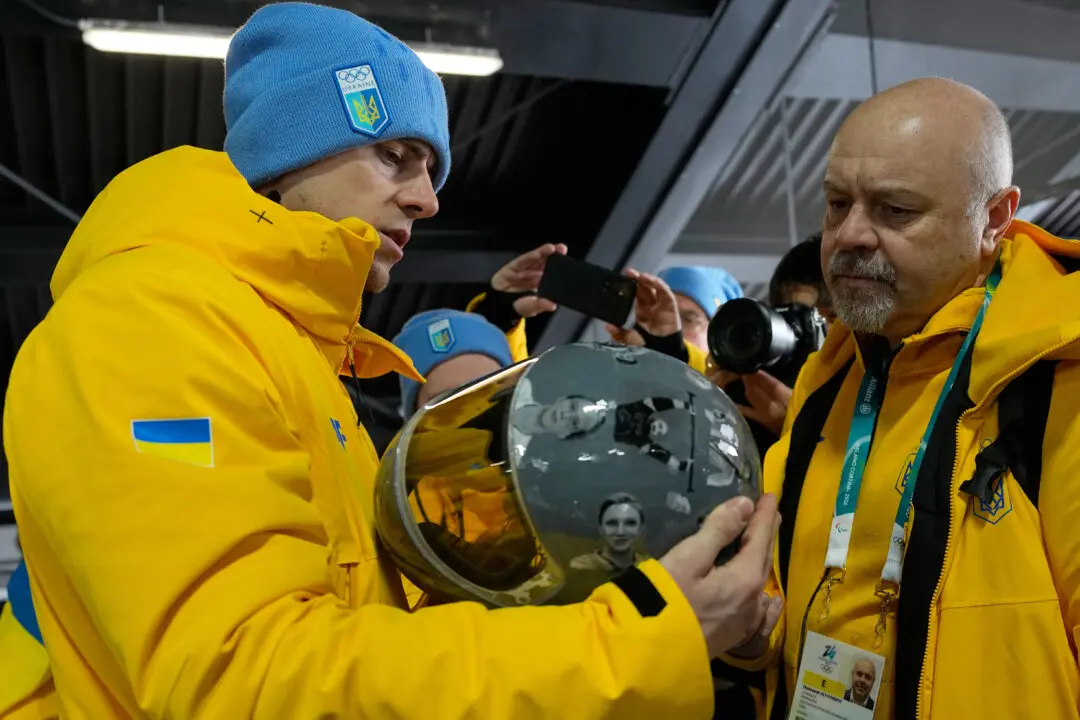DAMASCUS, Syria—Russian warplanes have attacked the ISIS group and other insurgents in central and northern Syria with a wave of new airstrikes, Syrian and Russian military officials said Saturday as an activist group said Russia’s air raids have killed 39 civilians over the three past days.
The new airstrikes came as residents of Syria’s central regions fear the Russians are paving the way for a ground offensive by the government on several towns in the central province of Hama and the northwestern region of Idlib — where the Syrian army suffered major setbacks over the past months, activists said.
Russian military spokesman Maj.-Gen. Igor Konashenkov said the warplanes flew 20 missions in Syria over the past day, hitting nine ISIS targets. He said an ISIS command post and a weapons storage bunker were destroyed in the area of Raqqa, the extremists’ de facto capital.
Col.-Gen. Andrei Kartapolov, a top official in the Russian military’s general staff, said Russian pilots had flown more than 60 sorties since Sept. 30, targeting ISIS command posts, ammunition storehouses and weapons-production factories.
“Our intelligence has determined that the militants are leaving the areas they control. Panic and desertion have begun in their ranks,” Kartapolov said in a briefing transcript posted on the Defense Ministry’s Facebook page. “We will not only continue attacks by our airplanes, but will increase their intensity.”
In Damascus, an unnamed Syrian military official was quoted by state TV as saying that the “concentrated and precise” airstrikes destroyed a command center in the central town of Latamneh in Hama province and targeted positions in the northwestern areas of Jisr al-Shughour and Maaret al-Numan.
Konashenkov said equipment and weapons storage facilities were destroyed in a strike near Jisr al-Shughour and an ammunition depot was destroyed in Maaret al-Numan.
The ISIS group has no presence in the northwestern province of Idlib, which includes Jisr al-Shughour and Maaret al-Numan.
The Russian airstrikes that began Wednesday have mainly targeted central and northwestern Syria, strategic regions that are the gateway to President Bashar Assad’s strongholds in the capital, Damascus, and along the Mediterranean coast.
Russia says it is targeting the ISIS group and al-Qaida’s Syrian affiliate, but at least some of the strikes appear to have hit Western-backed rebel factions.
Later Saturday the Britain-based Syrian Observatory for Human Rights said warplanes believed to be Russian attacked the central town of Hobeit in Idlib province.
The air raid came as hundreds of people fled their homes in areas near Hobeit fearing a ground offensive by government forces, activists said.
Turkey-based activists Mohammed Kanaan and Ahmad al-Ahmad said the army has informed residents of the nearby village of Kfar Nabboudeh, that agreed to a truce with government forces months ago, that troops want to pass through the village on their way to the rebel-held areas of Hobeit and Khan Sheikhoun.
Both activists said that the army has informed residents of Kfar Nabboudeh through mediators that no one in the village will be harmed unless they attack government forces.
“There is intense shelling on the areas in preparation for a ground offensive,” al-Ahmad, who is in contact with activists on the ground, said via Skype. He added that many people fled from the two rebel-held areas toward northern regions close to the Turkish border.
Kanaan said the Russian warplanes have “massive destruction strength.” He added that militants in the southern Idlib and northern Hama are getting prepared to fight against troops once the offensive begins.
The Observatory’s chief Rami Abdurrahman said the first three days of Russian airstrikes on Syria have killed 39 civilians and 14 militants without saying whether the fighters included ISIS members.
The Observatory said that Russian warplanes struck a hospital in the mountains of the coastal province of Latakia causing damage but no casualties.
International charity group Doctors Without Borders, also known as MSF, said the hospital was formerly run by the group but has since been handed over to local medical groups.
“What we can confirm is that the hospital has been damaged by strikes, but the staff has been able to evacuate safely and there are no causalities,” said Yazan Al-Saadi, MSF’s spokeswoman in Beirut.
Russian Defense Ministry could not immediately be reached for comment.
In Iraq, Prime Minister Haidar al-Abadi told reporters that Baghdad welcomes the idea of Russian warplanes attacking IS in Iraq as well.





